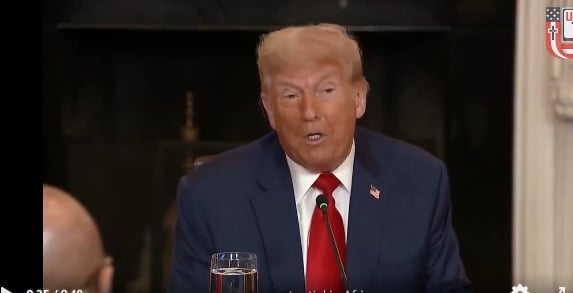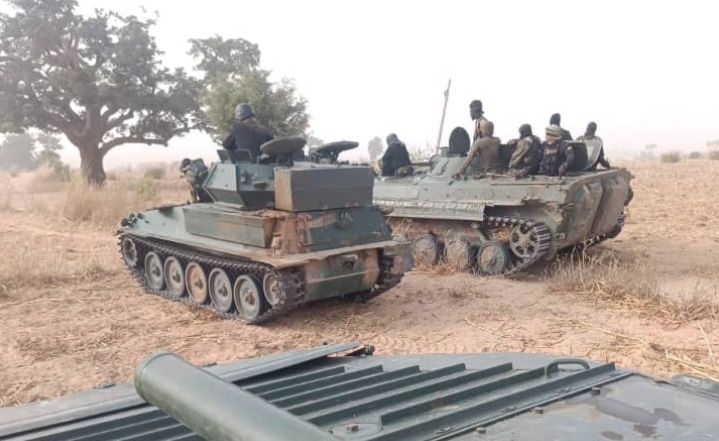BY ISAH ALIYU CHIROMA
The recent statement from the President of the United States, threatening to cut aid to Nigeria and order military preparations unless attacks on Christians cease, has escalated an already tense atmosphere into alarming headlines. Many interpret this declaration as an expression of moral outrage, which is understandable. However, such an approach risks causing more harm than good, not only to the individuals it aims to protect, but also to US-Nigerian relations and the broader principles that should guide international responses to crises.
First and foremost, it is crucial to acknowledge that the complexities of Nigeria’s security situation are multifaceted. The country grapples with a range of violence, from the insurgencies of Boko Haram and ISIS-affiliated groups in the northeast to communal clashes and criminal banditry in the middle belt and northwest regions. Victims of this violence span various religious and ethnic communities, and the root causes of such violence often lie in local grievances, historical conflicts, governance failures, land and resource competition, and the erosion of security institutions.
Furthermore, unilateral military threats carry substantial legal and practical risks. International law imposes strict limitations on the use of force across borders; unless clearly defending oneself or authorised by the UN Security Council, foreign military interventions in sovereign states raise troubling questions about legality and legitimacy.
Advertisement
Even when framed as humanitarian efforts, such interventions can have unintended consequences: they may fuel nationalist sentiments, embolden extremists, destabilise fragile institutions, and create power vacuums that further exacerbate violence. Any entity contemplating military action must carefully consider whether it can achieve sustainable protection without aggravating the dynamics that lead to violence.
Additionally, coercive gestures may undermine long-term partnerships and hinder progress. Nigeria is a strategic partner for the U.S. in Africa, vital for regional stability, counterterrorism cooperation, and economic relations. Sudden aid cuts could have a detrimental impact on civilians who rely on humanitarian assistance and development support.
The threat of military force complicates collaboration on shared security objectives. If the aim is to strengthen protections for vulnerable communities, a more effective approach would involve continuous diplomatic pressure, conditional aid tied to specific reforms, and support for Nigeria’s capacity to investigate and hold accountable those who perpetrate abuses—not abrupt aid cuts or threats of military intervention.
Advertisement
This discussion does not advocate for complacency. Where credible evidence exists regarding systematic persecution, the international community has both a moral obligation and practical means to act responsibly. Options include targeted sanctions against perpetrators, judicial cooperation for accountability, multilateral pressure through the United Nations and regional organisations, bolstered civilian protection programs, and strengthening the rule of law and community reconciliation.
At its core, the ongoing tensions reflect a complex interplay of interests, especially regarding U.S. foreign policy. As the United States faces significant economic challenges, it needs to explore mutual relations that benefit both parties. However, being a superpower does not justify military interventions in resource-rich countries.
Historical examples, such as US involvement in Iran and Libya, highlight the unintended consequences of such actions. Instead of resorting to force, the U.S. should focus on diplomatic engagement, trade partnerships, and cultural exchanges that foster lasting ties. While the U.S. has specific interests globally, prioritising collaboration over coercion will lead to a more stable and prosperous future for all nations involved.
To Nigeria’s leaders, this moment calls for urgency and humility. Protecting citizens, irrespective of their faith, remains the core duty of any government. Authorities should embrace impartial investigations, foster collaboration with partners, and implement proactive measures such as effective policing, support for displaced communities, and robust early-warning mechanisms.
Advertisement
This is a pivotal moment, a stark reminder of the challenges that lie at our doorstep. It calls for a reassessment of our approach and emphasises the urgent need for well-coordinated actions to address our national issues. We cannot afford to wait for others to highlight our struggles. Let this be a turning point in our commitment to take responsibility for our future and ensure that we are active participants in forging the path forward, rather than passive observers of our own fate. The time for change is now.
Views expressed by contributors are strictly personal and not of TheCable.

